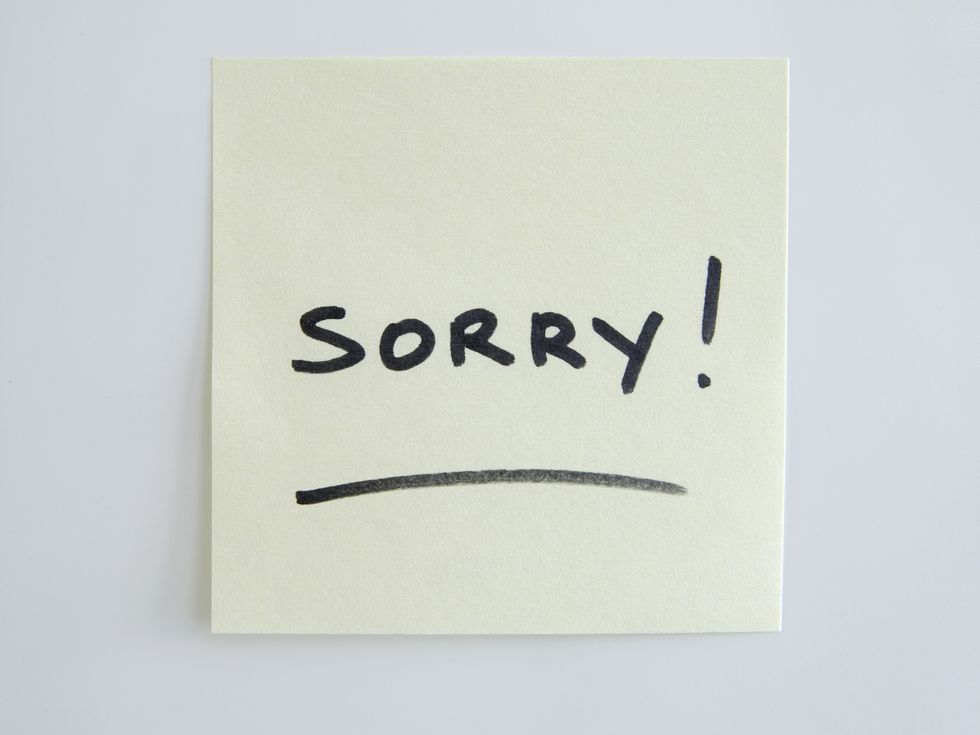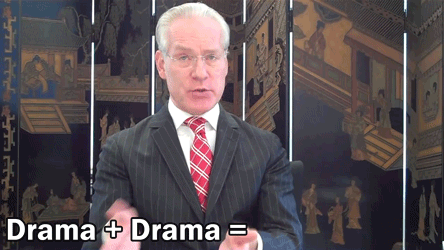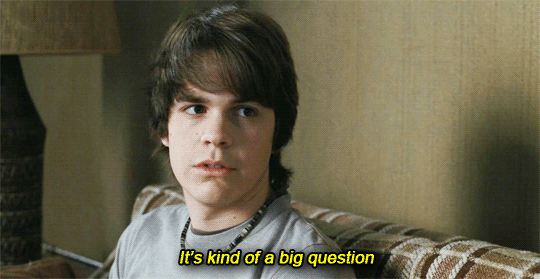I'm sorry. We use this phrase as a way of pardoning our misbehavior, and dissolving hostility. Whether it be showing up late, or even offending a friend an apology is an inevitable part of fixing our wrongdoings. However, there is a point when apologies can end up doing more harm than good. The more we apologize for unnecessary things, the more we strip the legitimacy of a simple "I'm sorry." Over-apologizing has contributed to overall lower self-esteem and sense of unprofessionalism in people; but more specifically in women. To ensure that we are only apologizing when it is necessary, make sure to be mindful of these few tips...
Carefully Choose Your Words
Part of my problem was that I found myself often using "sorry" as a filler word. Most of the time I was apologizing out of habit, rather than actually feeling remorseful. In doing so, I gave off the impression that I was a push-over. Rather than be recognized for my redeeming qualities, I was conveying an one-sided image of myself; that I was just submissive and timid. The way you speak has a huge impact on the way people perceive you. By eliminating unnecessary apologies from my vocabulary, I was able to change the way I presented myself to others.
Try to Avoid Drama in the First Place.
This is probably the easiest task out of the four, and the most self explanatory: avoid drama. Rather than get yourself into situations that require an apology in the first place, try and find ways to modify your behavior. An important point to note is that these modifications should not lead you into submission. Changing your behavior does not mean you should become more tolerable of blatant mistreatment. Instead, focus on avoiding insignificant drama and making sure when you apologize it is for the right reason. Choose your battles.
Turn Apologies Into Appreciation.
More often than not, apologies are gratitude in disguise.
"I'm sorry you had to come all this way to pick me up" can easily be rephrased as, "Thank you so much for picking me up!"
Rather than insinuate a feeling of guilt, this tiny change in wording gears this statement towards positivity and gratefulness. Part of the reason that over-apologizing is so harmful is because of the meaningless guilt it fosters in people. It impacts our self-esteem, and is part of the reason people lack confidence. In an effort to alter this problem, it is crucial that we start changing the context in which we apologize.
Ask Questions Without Discrediting Yourself.
Stop apologizing before asking questions. Here's an example:
"I'm sorry can you help me with this question?"
Rather than blatantly undermine yourself, ask questions politely rather than prefacing them with an apology. Initiating a question with an apology is unprofessional, and gives off the impression you lack confidence. You should never feel insecure asking for help. Asking questions is okay, so never apologize for needing clarification!





















